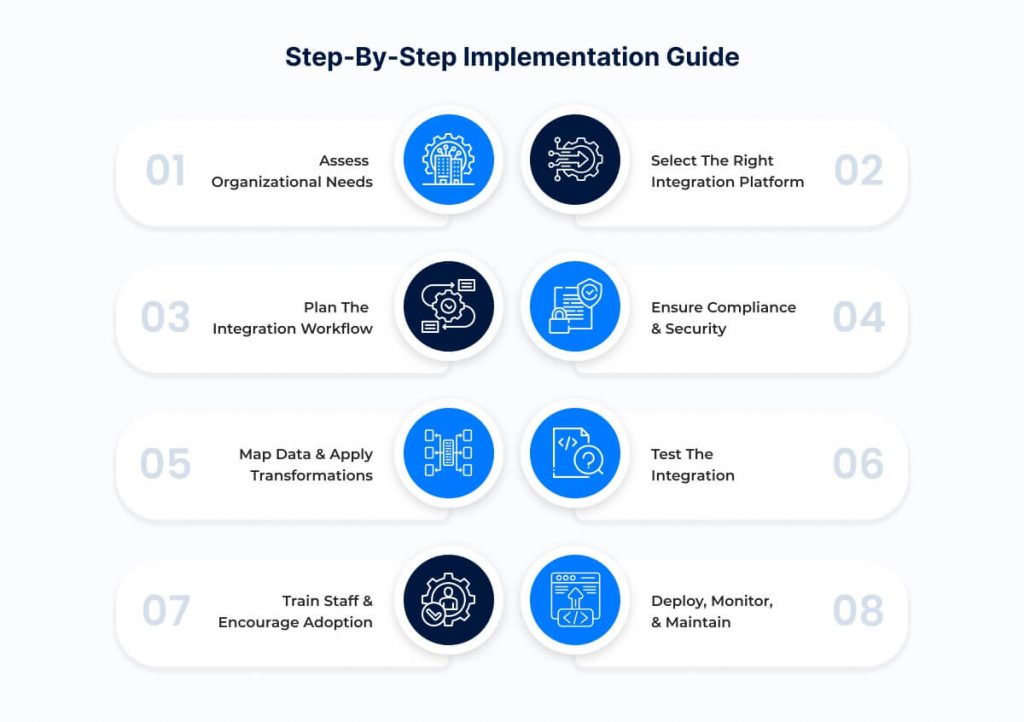In the evolving field of healthcare, medical practices are looking for ways to enhance operational efficiency while ensuring patient care quality. One significant development is the integration of artificial intelligence (AI) technologies into front-desk operations. These innovations enable healthcare facilities to automate administrative tasks, enhance patient interactions, and reduce workload, which contributes to a more effective healthcare delivery system.
Understanding the Role of AI in Front-Desk Operations
The front desk in a medical practice is the first point of contact for patients. It manages important tasks such as appointment scheduling, patient registration, and insurance verification. Traditionally, these processes required considerable human resources and time. However, AI helps simplify these tasks, providing automated solutions that improve operational efficiency and maintain a high standard of patient service.
AI-equipped virtual front desk systems can handle routine tasks that staff normally perform. For instance, they can automate appointment scheduling and verify insurance details in real-time, which reduces errors associated with manual entry. This operation creates smoother workflows, enabling staff to focus on more complex issues and engage more meaningfully with patients.
AI innovations such as virtual receptionists enhance communication and service delivery. These digital assistants can manage inquiries and facilitate check-ins, which reduces patient wait times and improves the overall experience.
Technology Implementation and Integration
To fully benefit from AI in healthcare front-desk operations, seamless integration with existing systems like Electronic Health Records (EHR) is crucial. Many organizations, including eClinicalWorks, support such integrations, providing a unified platform that improves workflow efficiency. eClinicalWorks has become a leader in healthcare AI innovation, allowing healthcare providers to optimize front-office operations. By synchronizing patient data across various platforms, practices can achieve real-time updates, leading to better patient management.
AI-driven solutions can enhance efficiency by managing labor-intensive tasks like billing and coding with greater accuracy. Automation helps healthcare providers process large amounts of data rapidly and reliably, resulting in reduced administrative burdens and improved patient care.
The Impacts of Automation on Administrative Tasks
Healthcare administrators consistently look for ways to cut costs tied to staffing and operational inefficiencies. AI automation lowers these expenses by minimizing the reliance on extensive human resources and reducing errors. Hospitals using AI receptionists have noted significant gains in productivity and staff morale.
A report by the Healthcare Financial Management Association revealed that 46% of hospitals and health systems in the U.S. utilize AI in their revenue cycle management (RCM) operations, with 74% automating revenue-cycle tasks. Organizations such as Auburn Community Hospital and Banner Health have successfully adopted RCM solutions that streamline billing processes, reduce denied claims, and boost coder productivity.
By automating appointment scheduling and insurance verification, healthcare practitioners can promote accurate billing from the start, which leads to improved operational efficiency and patient satisfaction. Incorporating AI in administrative tasks results in faster processing times and lowers the chances of clerical errors, allowing healthcare providers to concentrate more on patient care.
Enhancing Patient Experience with AI
The integration of AI into front-desk operations improves staff efficiency and enhances patient experience. Virtual front desks offer patients 24/7 access to their information, enabling them to schedule appointments, verify insurance, and access care instructions at their convenience. This accessibility is important in today’s fast-paced environment, allowing patients to manage their healthcare outside traditional office hours.
The healow Genie AI contact center provides round-the-clock support for addressing inquiries about appointments, referrals, and prescriptions. This automation supports patients and reduces some burdens on staff, leading to clearer communication and direct engagement.
Medical practices adopting virtual front desk services report better patient interactions, as these services efficiently handle inquiries and appointment management. When patients need to reschedule or ask about services, AI technologies deliver quick and accurate responses, improving satisfaction rates.
Workflow Automations in Healthcare
Reducing Administrative Burdens
The success of any healthcare organization depends on its ability to optimize workflows. AI solutions have become valuable tools for streamlining these processes. By automating tasks such as patient check-ins, billing, and appointment management, administrators can focus more on critical healthcare delivery aspects rather than administrative distractions.
For instance, AI systems can manage appointments by predicting no-show rates based on historical data, keeping schedules full and minimizing gaps that could lead to losses. Additionally, AI technologies can eliminate manual data entry, reducing errors in patient information that might lead to billing disputes or delays in care.
Facilitating Compliance and Data Management
Healthcare compliance is crucial due to the sensitive nature of patient information. AI technologies help ensure compliance with regulations like HIPAA by implementing strict data security protocols and managing patient records confidentially. Virtual front desks operate under these standards, safeguarding the integrity of patient data.
AI systems can also streamline managing documents related to prior authorizations, referrals, and insurance verifications. This enhancement leads to improved data accuracy and reduced time required to complete these administrative tasks. Organizations report faster turnaround times for these processes, which results in quicker care delivery for patients.
Personalizing Patient Interactions with AI
The concern of depersonalization in healthcare interactions comes up with the use of AI technologies. However, a thoughtful approach can incorporate personalized human elements alongside automated processes. By using AI to handle routine tasks, healthcare staff can engage more meaningfully with patients.
Cleveland Clinic’s use of AI receptionists shows that when patients interact with a virtual assistant first, they still get personalized follow-ups from staff. This combination enhances the patient experience, ensuring that while initial engagement is automated, care remains attentive.
AI technologies can analyze patient data to provide tailored service offerings, adjusting communications to meet individual patient needs based on health history and preferences. This focused approach can increase patient loyalty and satisfaction, making patients feel more valued when receiving care that reflects their specific situations.
Case Studies on AI Implementation
Several medical practices in the U.S. provide compelling examples of the benefits of implementing AI in front-desk operations:
- Parikh Health: This organization integrated Sully.ai into its Electronic Medical Records (EMRs), leading to a 90% reduction in physician burnout and significant time savings in patient chart management. Clinicians could focus more on patients while reducing administrative time from over 15 minutes to just 1-5 minutes per patient.
- eClinicalWorks: At the 2024 National Conference, eClinicalWorks highlighted its commitment to improving patient outcomes through AI technologies. Their solutions like healow Genie and automated RCM tools streamlined both front-office and back-office operations, resulting in increased productivity and lower overhead costs.
- CureMD: Offering a comprehensive suite of virtual front desk services, CureMD improves patient experiences by efficiently managing appointments, conducting insurance verifications, and addressing patient queries. Their services comply with strict HIPAA standards, protecting patient data while enabling seamless administrative support.
Challenges in AI Implementation
While the benefits of AI in healthcare front desks are clear, challenges also exist. Integrating AI with existing systems may require significant adjustments, especially for established practices using legacy software. Compatibility with current management systems is essential for achieving the efficiency that these AI tools promise.
Furthermore, compliance with regulations like HIPAA is vital. Organizations must put measures in place to protect patient data while utilizing AI tools. Strategies might include regular audits, using blockchain technology for data privacy, and ensuring employee training to effectively understand AI’s role in patient interactions.
There is also a risk of depersonalization when increasing automation. To minimize this risk, practices need to create a strategy that combines technology with human elements, ensuring that while AI handles routine tasks, healthcare providers continue to deliver personalized care.
Adopting AI for Future Readiness
The healthcare industry is moving into a phase where AI-driven technologies will play a vital role in its progress. As practices across the United States implement these innovations, they reap the benefits of streamlined operations, enhanced patient satisfaction, and lower administrative costs.
AI is not a fleeting trend but an ongoing evolution reshaping healthcare delivery. Medical practice administrators, owners, and IT managers must adjust to this shift by adopting AI solutions that enhance front-desk operations. By assessing their current systems and identifying areas where AI can improve productivity, healthcare organizations can position themselves for future success.
With careful consideration of the challenges involved and a strategic approach to integration, practices can fully utilize AI innovations to streamline operations, leading to improved healthcare delivery for both patients and providers.
The post How AI Innovations Are Streamlining Healthcare Front-Desk Operations first appeared on Simbo AI – Blogs.






